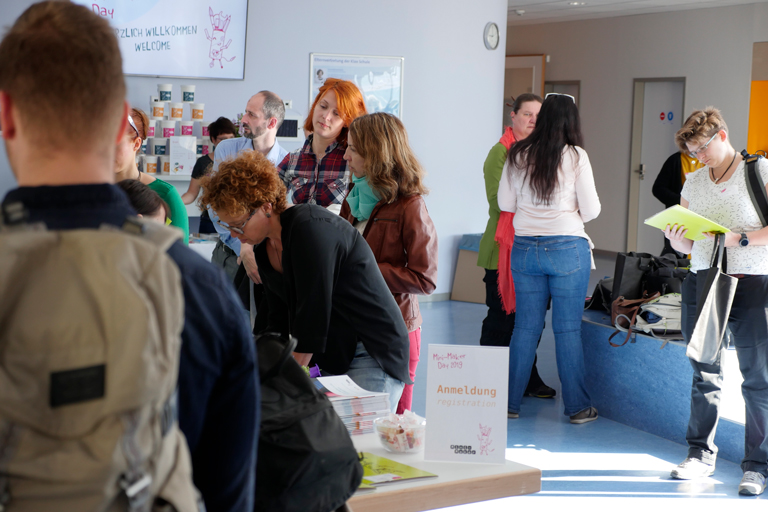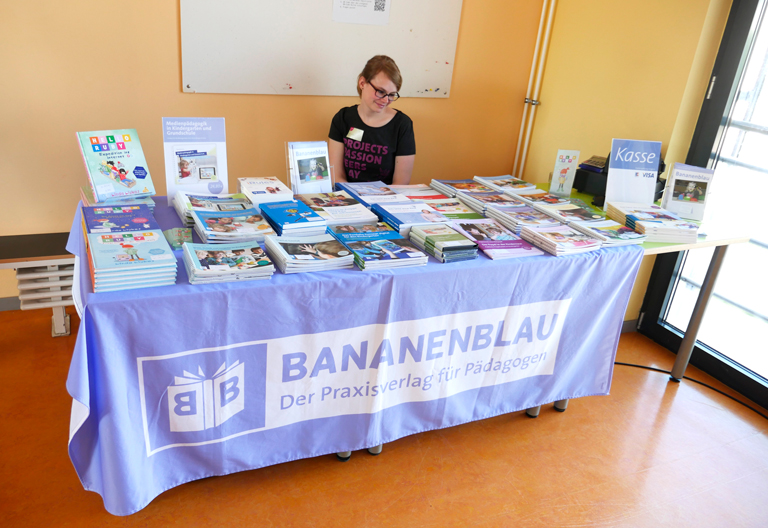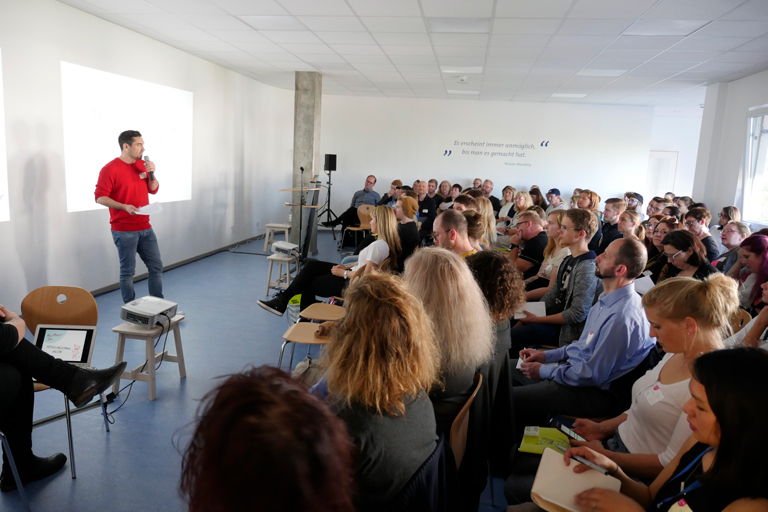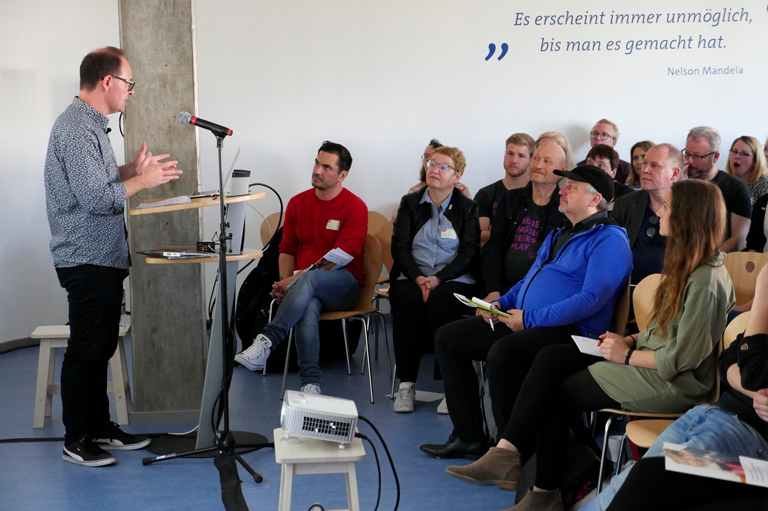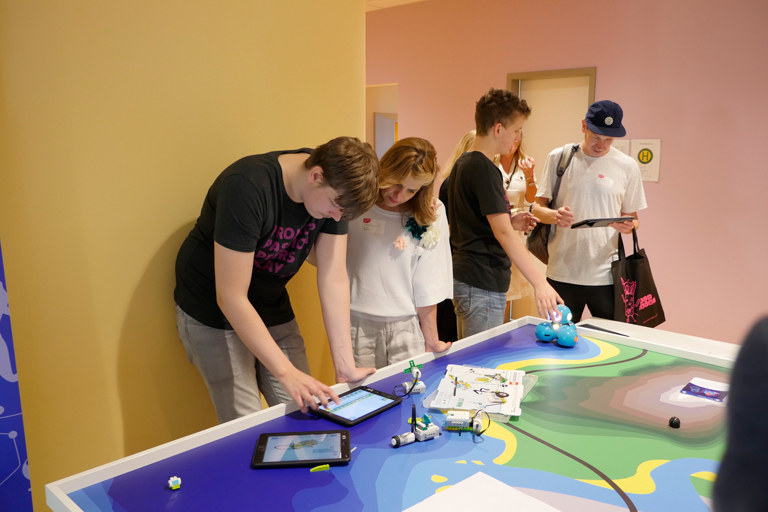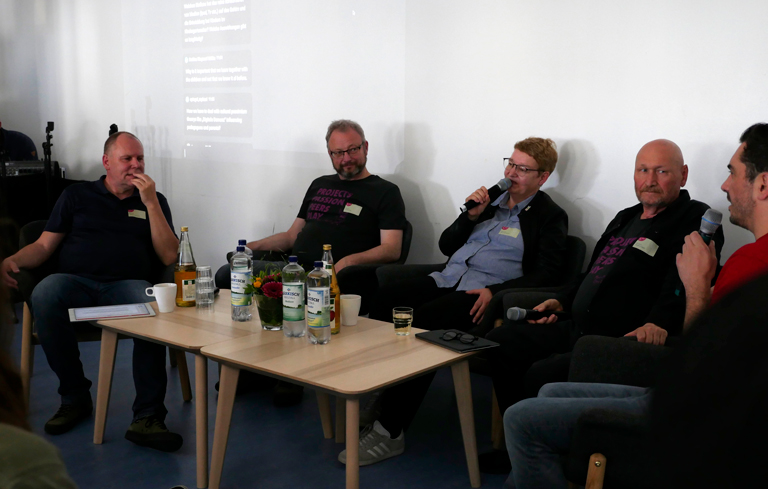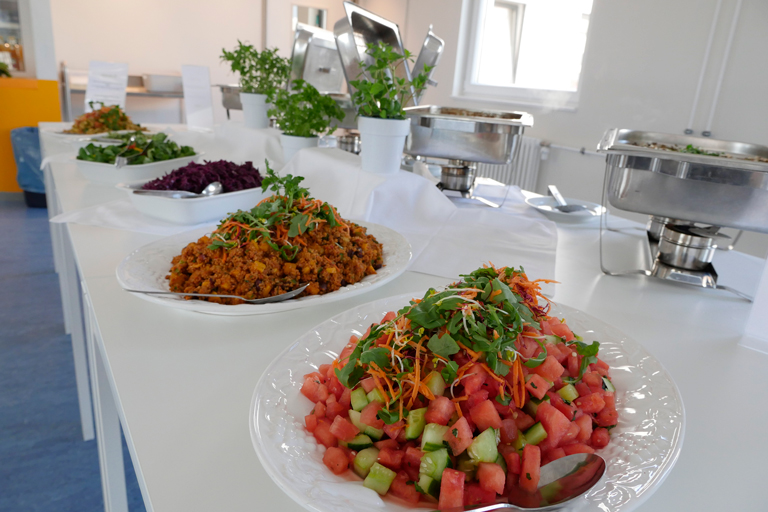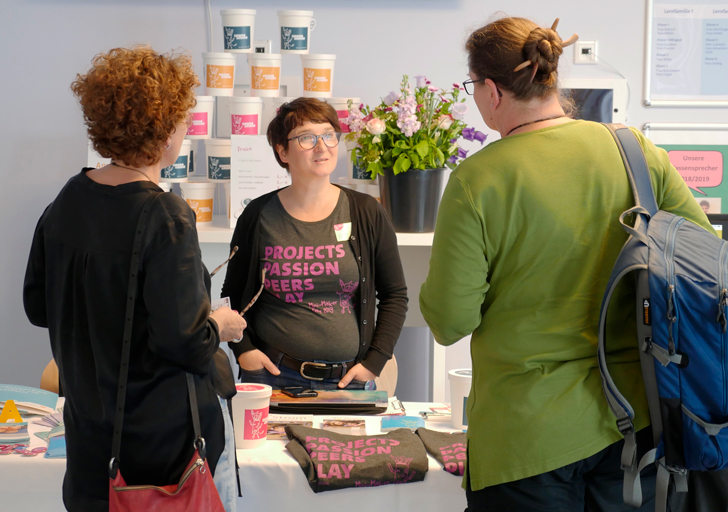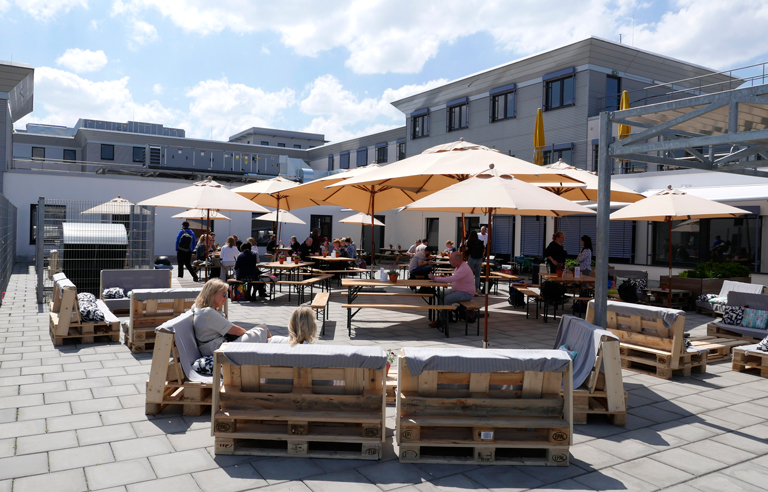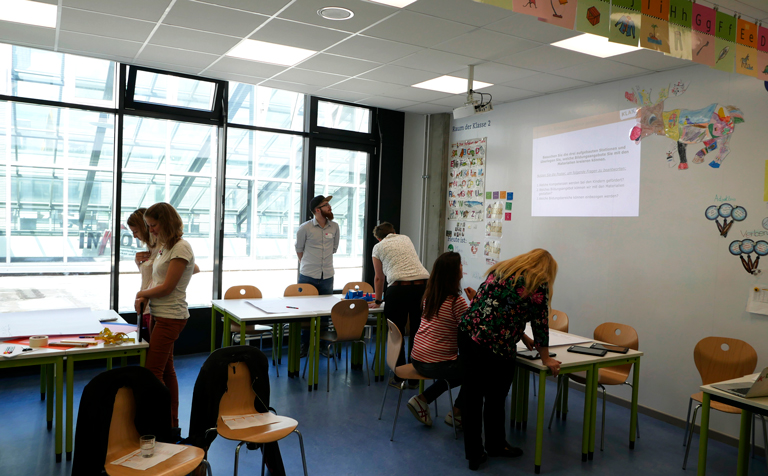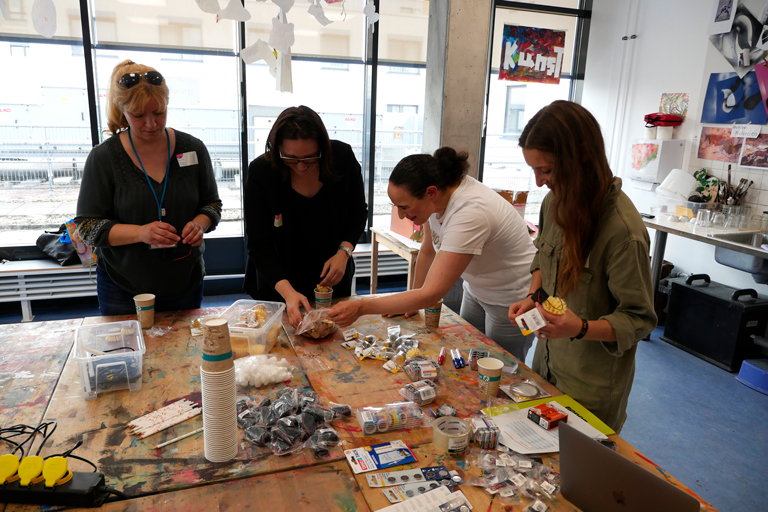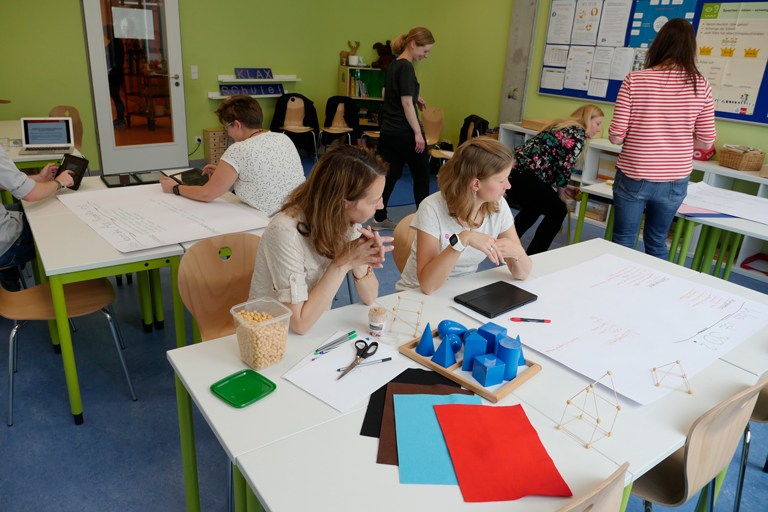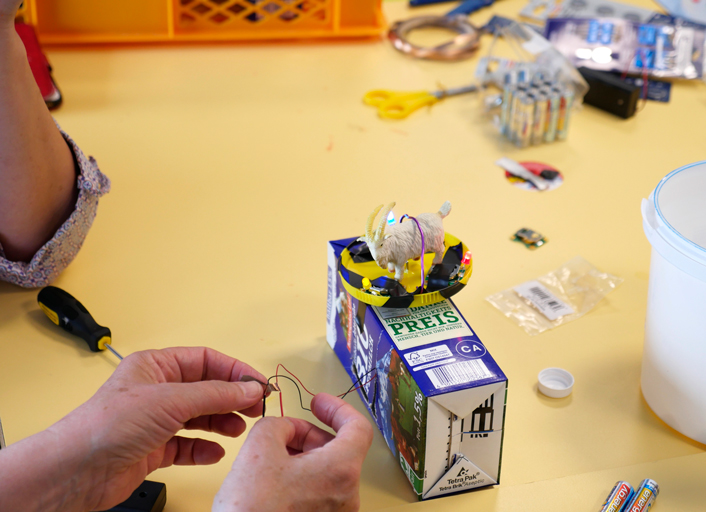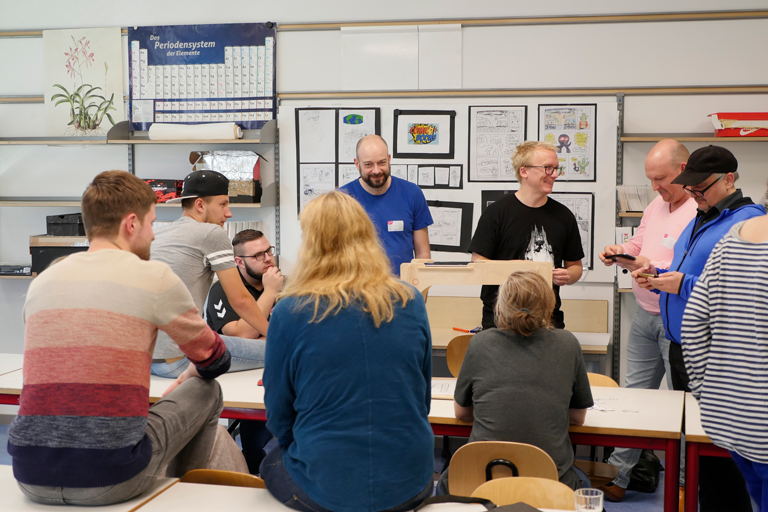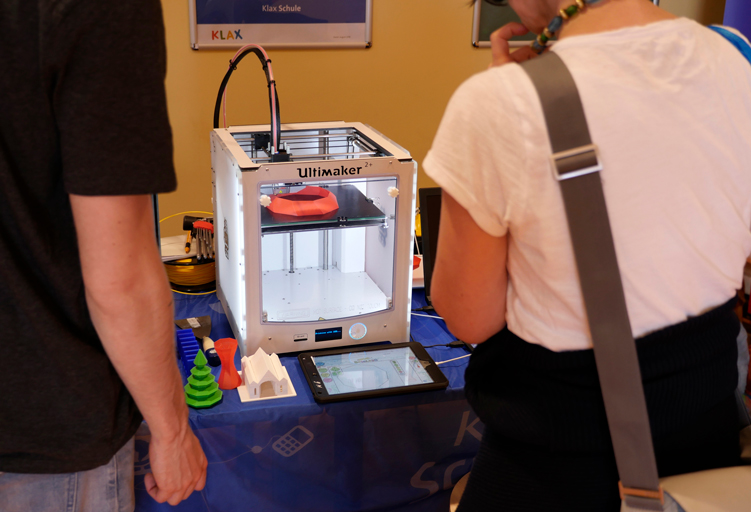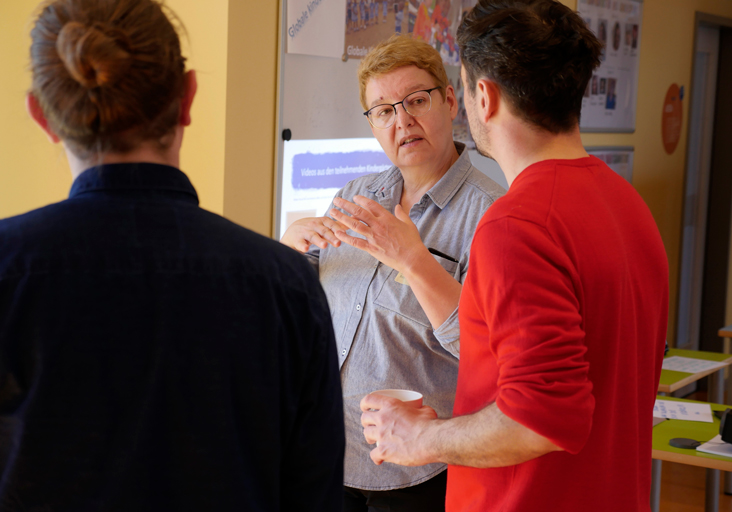That was the
Mini-Maker
Day 2019
Challenge-based learning with digital media in vocational trainingMay 18th, 2019
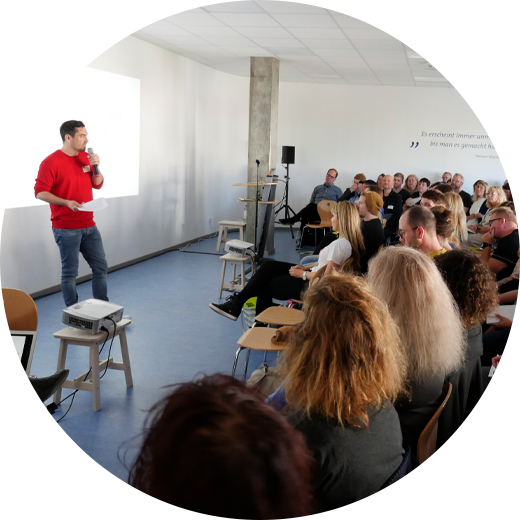
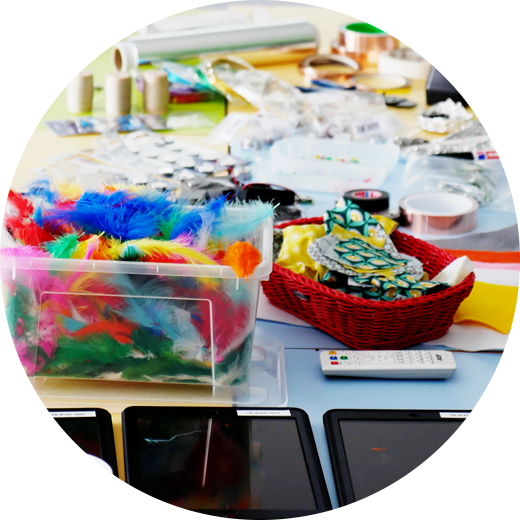
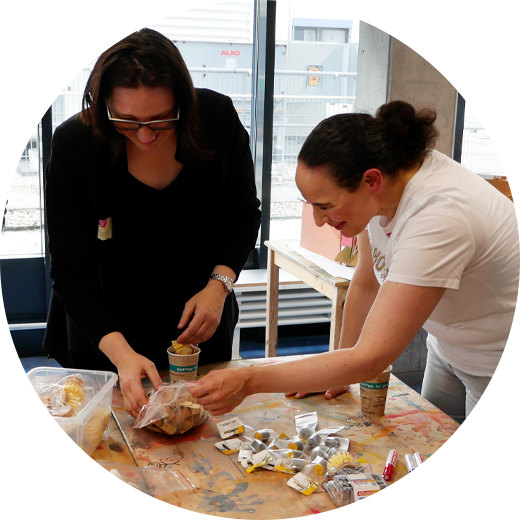
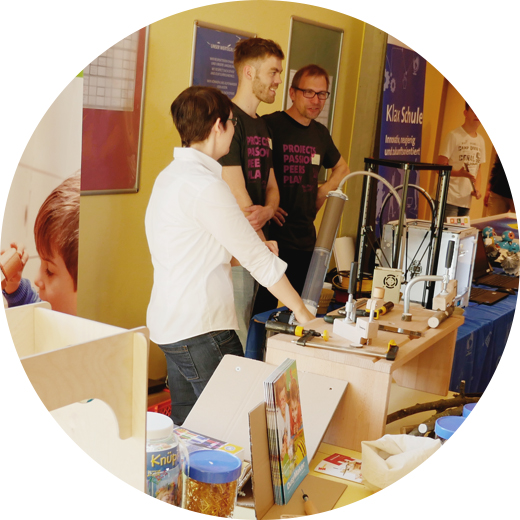
Review

Which learning opportunities does challenged-based learning offer?

How can digital media support educational processes of children?

Why should digital media education be part of the vocational training of pedagogues?
Keynote
Lars Geer Hammershøj

Play, creativity and Bildung in the digital age
Pitches
Steen Søndergaard

What does „Bildung“ mean in the digital age?
How does digitization changes our concept of education and what does this mean in an European perspective? What competencies do children and adults need in a future which will be different from what we can imagine today?
Grete Helle and Tom Rune Fløgstad
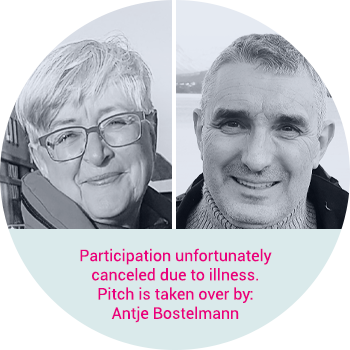
How is the pedagogical profession changing?
Was there ever a time where adults knew more than children? Is digitization changing our profession – or could you say that pedagogical action remains basically the same, even if digitization is profoundly changing the world?
Klaus Thestrup

Maker Mentality in the kindergarten
Integrate the possibilities of new media into the early childhood education with creativity and play, with sense and brains. Not if, but how – the ways are shown here.
Antje Bostelmann
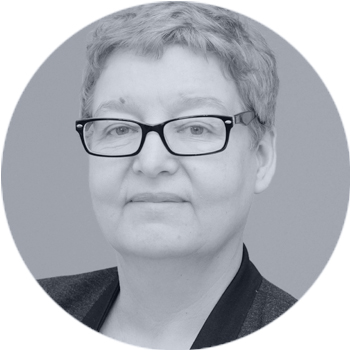
Demands on an pedagogy of the future
In the digital age, pedagogical fields will be more and more about supporting children, but also learning from and with them at the same time. How can this succeed, what do we need for it?
Frank Støvelbæk

Methodology & Methods of adult education
And now? Anyone who has not grown up with digital media, but wants to work state-of-the-art, might need support. We discuss the topic of digital education for educational professionals.
Workshops
1
„Bildung“ in the digital age
Workshop 1.1
Maria Odemarck
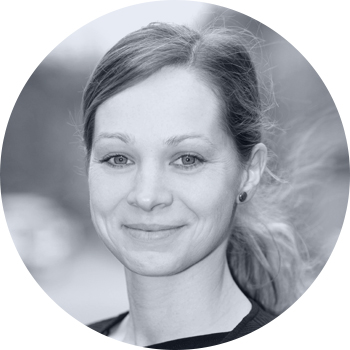
The Meaning of education for kindergartens
Kindergartens as educational institutions accompany and support children in gaining competencies in order to get along in the digital world. These competences should be well-known as well as ways in which educational activities can be designed to support children’s production, technical and information competences. The requirements for educational work in kindergartens are discussed in this workshop and illustrated with examples.
Workshop 1.2
Steen Søndergaard

„Bildung“ & Play
This workshop will show how a tablet and other digital technologies can be integrated in playing communities and used from a pedagogical perspective for educational work. Participants have the opportunity to try digital technologies and related plays.
Workshop 1.3
Silke Schaper
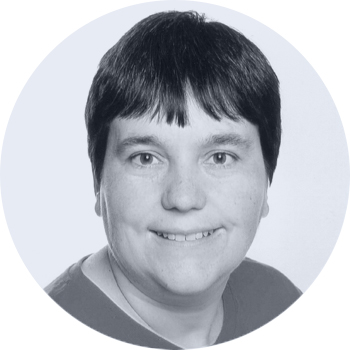
Computational Thinking & „Hello Ruby“
Computational thinking refers to a person’s ability to identify a problem, break it up into sub-steps, design and develop solution strategies. In this workshop, we will address the following questions: What exactly is Computational Thinking? What does Computational Thinking involve? … and of course how can I translate this topic into pedagogical practice. Among other things, you will learn various practical implementation options based on the ”Hello Ruby“ books.
2
Pedagogical profession changing
Workshop 2.1
Camilla Lystager & Bettina Risgaard Stillits
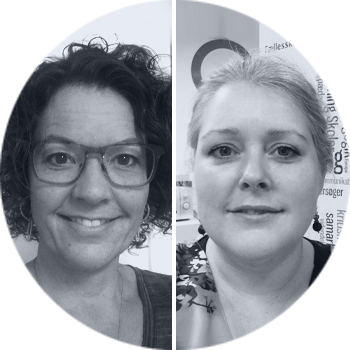
How do pedagogical innovations change myself and how do I bring this development into my team?
Two educators talk about their work with digital media and how it has evolved over time. How do you evaluate the use of digital media in inclusion education? What knowledge did the educators gain from working with digital media in kindergarten over time? How did we motivate our colleagues to deal with new developments? How do I involve my manager in this development? These and other questions will be discussed in this workshop. You will also get to know some digital media.
Workshop 2.2
Malin Österman & Tonnie Nilsson & Lisa Erbén
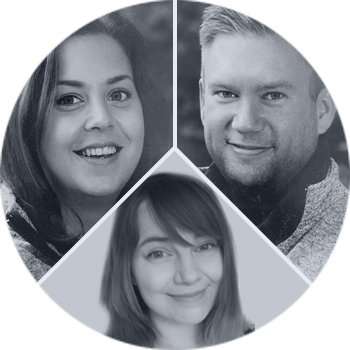
How to integrate the explorative way of learning in every day life at the kindergarten
How does a battery work? In this workshop we will talk about digital documentation and reflection, explorative learning and the mini-maker. We’ll show you how we use these methods to help children recognize and reflect their own learning process. You will try the“making part” of the project: How does a battery work? We will also discuss how the methods can be adapted to different age groups.
3
Maker Mentality in the kindergarten
Workshop 3.1
Klaus Thestrup

The kindergarten as a laboratory – when children experiment and play with Green Screen
In this workshop the participants will get to know methods on how to let children play and experiment with technologies as well as narratives and the pedagogical framework around such activities. Green screen and experimenting with images will be used as an example to try out and reflect upon this. A small video from a kindergarten in Denmark will be shown to demonstrate the ideas. Tablets and certain apps will be used as some of the tools. Perspectives on future use will be included in the reflections during the workshop. This includes other technologies and the communication with the world outside the kindergarten.
Workshop 3.2
Dominic Fischer

Maker-Workshop – We construct Schrottbots
“Try, question and create” – Maker activities can awaken interest in creative do it yourself and open up learning opportunities at an early stage. On the other hand, this means experiencing surprising successes – it does not always work out what was imagined. Supporting innovation, inspiring MINT interest and inventiveness are just a few of the keywords that accompany us. The construction of “Schrottbots” (scrap bots) not only promotes technology skills and other meta-skills. Also the modern view of sustainability finds a hearing and forms with different factors important foundations in the concept and the experience of playful learning. “The journey is the goal” and “grasping is a grasping” – accept this invitation and become a producer of your own ideas on that day.
Workshop 3.3
Thomas Klindt Christiansen

Maker-Workshop – practical ideas
An insight in the work of an educator in the making of a stop motion movie in collaboration with children in the age of 4-6. The children experience their own creativity, ingenuity and independence, while being able to reach out for adult help and support at the same time. At the end being (for the most parts) able to produce their own props, sceneries and ultimately their own personal story and movie.
Workshop 3.4
Antonia Vinci

Light Art
The targeted usage of digital media supports the use of technical equipment and thus supports one’s own learning progress. The workshop ”Light Art“ combines various technical devices and tools. The use of tablets and light sources creates impressive and imaginative photographs. During the workshop, the appropriate apps and tools will be introduced, you will practice the use of these media and discuss their targeted application, possibilities and effects for their every day life in the kindergarten.
4
Pedagogue of the future
Workshop 4.1
Heidi Ingemann Jensen

How do I make my kindergarten ready for the future?
Why is it important as a leader to look to the future and actively deal with the future of children? How do I contribute my knowledge of change management when I have to prepare my kindergarten for the future? How do I work as a leader with resistance from employees and parents? These are some of the questions which will be discussed in the workshop. Finally, each participant starts with an implementation plan for using digital media in the own institution.
Workshop 4.2
Susan Richter

Working with learning desks at the kindergarten
Open learning desks are designed to a selected topic and offered to match the children’s current learning goals. In this workshop you will learn how this form of learning can be used in the work at a pre-school and how digital media can be integrated into it.
5
Adult Education
Workshop 5.1
Frank Støvelbæk

Reflection and processing of dilemma situations
At the workshop we will watch videos of everyday situations from kindergarten’s use of digital tools, we will use an analysis method to reflect on what we see and what we do not see. The method is simple and can be used by the participants in their own practice.
Workshop 5.2
Agneta Zetterström

How to use reflection as a tool to develop the own pedagogical attitude
What have you learnt about the learning today? How can you as a pre-school teacher or school teacher improve your professionalism by reflection and collegial learning? How can you and your colleagues use reflections and discussions as a method of collegial learning in a way that your team reaches better working results? Every institution must discuss and find its own way to evaluate its own practice. This should be done in a structured way on a regular basis. Let’s reflect this together!
